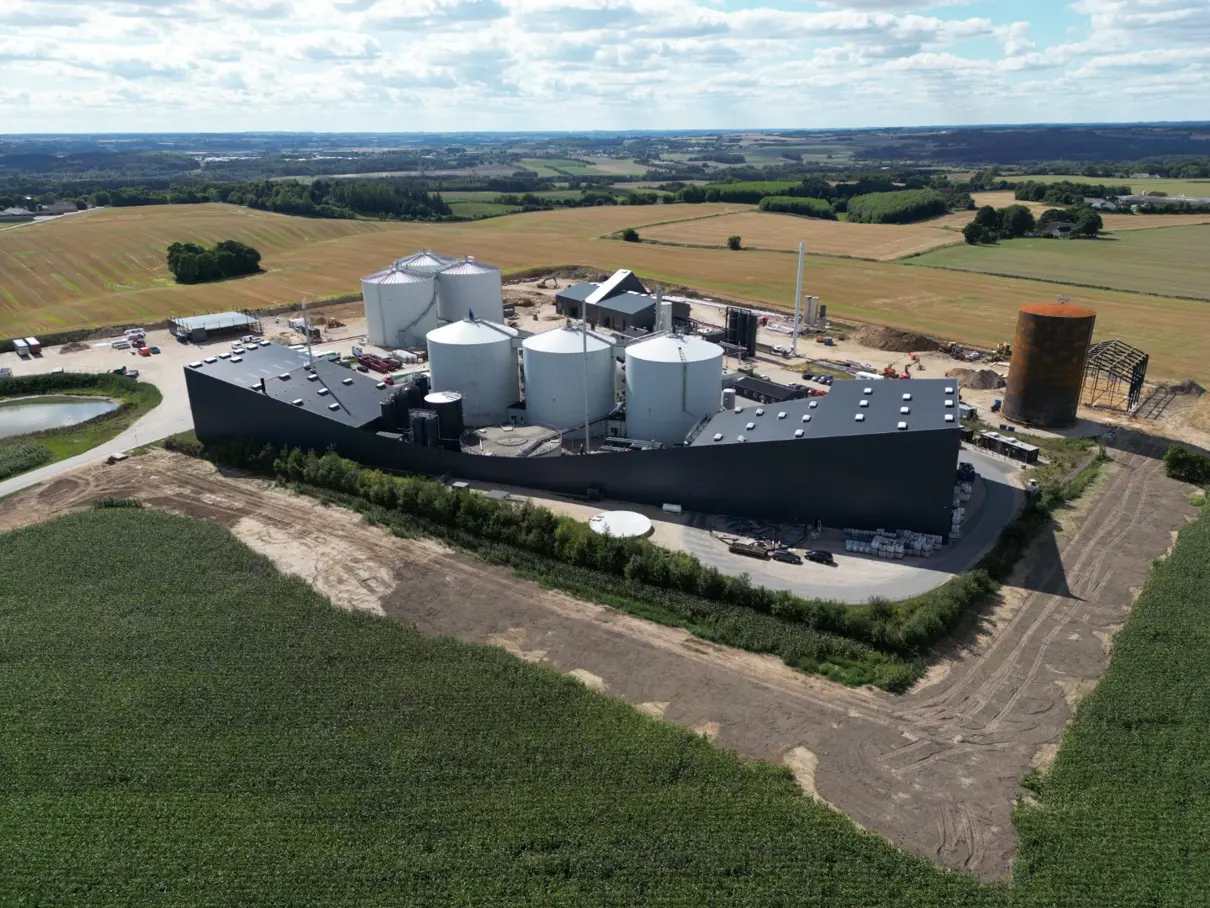A future where natural gas for Danish Crown's abattoirs and factories in Denmark and the fuel for the company's lorries will be replaced with biogas and other sources of energy created from the company's own biological waste is no longer wishful thinking. A new strategic agreement with the biogas company Bigadan ensures Danish Crown's access to significant amounts of green energy.
- In step with the growing interest in food with a documented lower carbon footprint, the agreement allows us to make parts of our production much more sustainable. We can utilise the byproducts from production to generate heat and energy, thereby making our products more circular," says Jais Valeur, CEO of Danish Crown.
Sustainable solutions benefit both companies
Significant amounts of biomass are generated in production at Danish Crown's abattoirs and factories, such as sludge and gastrointestinal contents that cannot be consumed by humans or used as animal feed. The biomass is sold to biogas plants, and under the new agreement, Bigadan is given sole rights to buy biomass from Danish Crown in Denmark.
Bigadan operates several biogas plants throughout Denmark. One of Bigadan's largest biogas plants is located near Horsens, only 800 metres from Danish Crown's largest pig abattoir.
- It makes a lot of sense for us in the industry to create close partnerships that enable us to optimise the value of – in this case – organic waste products and develop successful green solutions. Together with Danish Crown, we are part of the circular economy of the agricultural and food sectors, and we are excited about establishing collaborations like this, where we not only deliver green energy based on waste products but also contribute to recycling important nutrients back to agriculture," says Henrik Laursen, CEO of Bigadan.
Once the biomass from Danish Crown has been processed through the biogas plant and has been degassed, it is delivered directly back to agriculture and used as fertilizer.
- Bigadan's biogas plant is literally located right across the street, and both we and Bigadan have an interest in creating green solutions that benefit both companies. Danish Crown's waste becomes Bigadan's raw material and ends up back with us. It creates a symbiosis that makes sense in every way," says Jais Valeur.
Part of the sustainability journey
Initially, Danish Crown will receive cash for the biomass. However, the agreement is designed so that in the future, the company can be paid in, for example, biogas through a direct gas pipeline to Danish Crown's abattoirs and factories, or in alternative and more sustainable fuels for the company's lorries.
- Once we have implemented the opportunities provided by the agreement, we will have taken an important step in Danish Crown's sustainability journey. We will challenge the global meat industry by leading the way in ensuring a sustainable transition of food production," says Jais Valeur.
Danish Crown aims to produce climate-neutral (net-zero) meat by 2050 and has had its climate plan approved by the UN Science Based Targets initiative.
Facts:
- The agreement covers biomass from Danish Crown and its subsidiaries, Danish Crown Beef and DAT-Schaub.
- Danish Crown has an option to exchange the value of the biomass for, e.g., biogas, food-grade CO2, or origin guarantees.
- The agreement takes into account the principles of the bioeconomic value pyramid.
